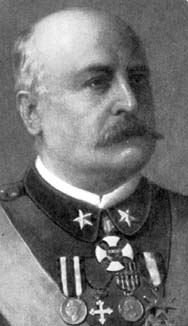

تاريخ الرياضيات

الاعداد و نظريتها

تاريخ التحليل

تار يخ الجبر

الهندسة و التبلوجي


الرياضيات في الحضارات المختلفة

العربية

اليونانية

البابلية

الصينية

المايا

المصرية

الهندية


الرياضيات المتقطعة

المنطق

اسس الرياضيات

فلسفة الرياضيات

مواضيع عامة في المنطق


الجبر

الجبر الخطي

الجبر المجرد

الجبر البولياني

مواضيع عامة في الجبر

الضبابية

نظرية المجموعات

نظرية الزمر

نظرية الحلقات والحقول

نظرية الاعداد

نظرية الفئات

حساب المتجهات

المتتاليات-المتسلسلات

المصفوفات و نظريتها

المثلثات


الهندسة

الهندسة المستوية

الهندسة غير المستوية

مواضيع عامة في الهندسة

التفاضل و التكامل


المعادلات التفاضلية و التكاملية

معادلات تفاضلية

معادلات تكاملية

مواضيع عامة في المعادلات


التحليل

التحليل العددي

التحليل العقدي

التحليل الدالي

مواضيع عامة في التحليل

التحليل الحقيقي

التبلوجيا

نظرية الالعاب

الاحتمالات و الاحصاء

نظرية التحكم

بحوث العمليات

نظرية الكم

الشفرات

الرياضيات التطبيقية

نظريات ومبرهنات


علماء الرياضيات

500AD

500-1499

1000to1499

1500to1599

1600to1649

1650to1699

1700to1749

1750to1779

1780to1799

1800to1819

1820to1829

1830to1839

1840to1849

1850to1859

1860to1864

1865to1869

1870to1874

1875to1879

1880to1884

1885to1889

1890to1894

1895to1899

1900to1904

1905to1909

1910to1914

1915to1919

1920to1924

1925to1929

1930to1939

1940to the present

علماء الرياضيات

الرياضيات في العلوم الاخرى

بحوث و اطاريح جامعية

هل تعلم

طرائق التدريس

الرياضيات العامة

نظرية البيان
Francesco Siacci
المؤلف:
H C Kennedy
المصدر:
Peano : Life and Works of Giuseppe Peano
الجزء والصفحة:
...
8-12-2016
869
Died: 31 May 1907 in Naples, Italy

Francesco Siacci graduated from the University of Rome in 1860 having already shown himself to have remarkable mathematical abilities. However this was a period of instability in Italian affairs and Siacci was deeply involved with the political events of the time.
The year 1860 was the year of Italian unification. Rome and its surroundings were to remain under the control of the Pope while the rest of the Italian peninsula was to become one kingdom with a moderate constitution. Victor Emmanuel II was declared "king of Italy" on 26 October 1860. The parliament in Turin declared that the Kingdom of Italy had come into being on 17 March 1861. The position of Rome presented problems and, for Siacci based in Rome, this was not the place to be. He moved to Turin in 1861 and enlisted in the army when he arrived there.
Since Siacci was already an excellent mathematician it was felt that he could make the best contribution to the army at the Military Academy in Turin. He was made an officer in the army and remained at the Academy until the outbreak of trouble in 1866.
In June 1866 a war broke out between Austria and Prussia and the Italian government saw it as a good opportunity to attack the Austrians in Venetia. Siacci took part in this campaign against the Austrians but was quickly sent back to teach ballistics at the Military Academy in Turin before the campaign ended. It was not a successful military campaign for the Italians and it was perhaps fortunate for Siacci that he returned to an academic post.
Siacci taught mechanics at the University of Turin from 1871. In 1872 Siacci was promoted to Professor of Ballistics at the Military Academy and he continued to hold this post until his army career ended in 1892 by which time he had reached the rank of major general. From 1875 he held a Professorship at the University of Turin in Higher Mechanics.
In 1893 Siacci was rewarded for his support for Italy by being appointed to the office of Senator in Rome. Turin was too long a journey from Rome to make it possible for Siacci to act as a Senator and hold his professorship in Turin. He therefore requested a transfer to the University of Naples. This was agreed: Siacci was made an Honorary Professor at Turin where Volterra was invited to fill his position, and Siacci taught at Naples for the rest of his life.
In [1] his mathematical contributions are given:-
Siacci is said to have been an excellent teacher, both at the university and at the Military Academy. He left some hundred publications, the most important being those concerned with analytic mechanics. In the application of mechanics to artillery - ballistics - he was a master. His treatise on this subject, especially the second edition of 1888, which had a French translation in 1891, was considered masterly. He received many honours during his lifetime, including election to most of the important scientific academies of Italy.
Books:
- H C Kennedy, Peano : Life and Works of Giuseppe Peano (Dordrecht, 1980).
 الاكثر قراءة في 1830to1839
الاكثر قراءة في 1830to1839
 اخر الاخبار
اخر الاخبار
اخبار العتبة العباسية المقدسة

الآخبار الصحية















 قسم الشؤون الفكرية يصدر كتاباً يوثق تاريخ السدانة في العتبة العباسية المقدسة
قسم الشؤون الفكرية يصدر كتاباً يوثق تاريخ السدانة في العتبة العباسية المقدسة "المهمة".. إصدار قصصي يوثّق القصص الفائزة في مسابقة فتوى الدفاع المقدسة للقصة القصيرة
"المهمة".. إصدار قصصي يوثّق القصص الفائزة في مسابقة فتوى الدفاع المقدسة للقصة القصيرة (نوافذ).. إصدار أدبي يوثق القصص الفائزة في مسابقة الإمام العسكري (عليه السلام)
(نوافذ).. إصدار أدبي يوثق القصص الفائزة في مسابقة الإمام العسكري (عليه السلام)


















